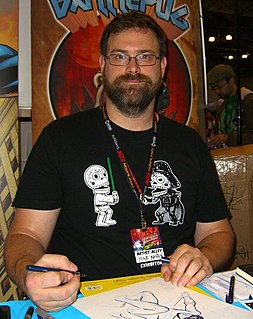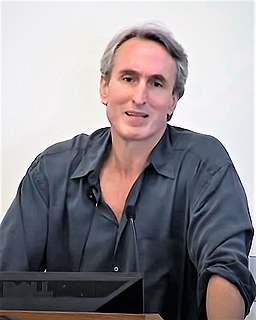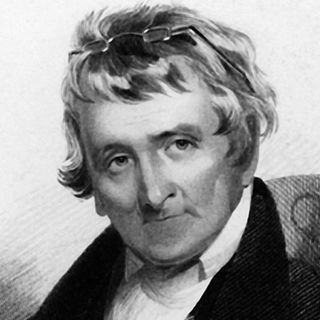A Quote by Eric Hoffer
Vehemence is the expression of a blind effort to support and uphold something that can never stand on its own. Whether it is our own meaningless self we are upholding, or some doctrine devoid of evidence, we can do it only in a frenzy of faith.
Related Quotes
That is the difference we make in the world. And our own safety, our own security, depends upon our willingness to do what it takes to defend this nation and uphold the values that we stand for - timeless ideals that will endure long after those who offer only hate and destruction have been vanquished from the Earth.
Minds fettered by this doctrine no longer inquire concerning a proposition whether it is attested by sufficient evidence, but whether it accords with Scripture; they do not search for facts as such, but for facts that will bear out their doctrine. It is easy to see that this mental habit blunts not only the perception of truth, but the sense of truthfulness, and that the man whose faith drives him into fallacies treads close upon the precipice of falsehood.
Never say that you can't do something, or that something seems impossible, or that something can't be done, no matter how discouraging or harrowing it may be; human beings are limited only by what we allow ourselves to be limited by: our own minds. We are each the masters of our own reality; when we become self-aware to this: absolutely anything in the world is possible
There are certain ways you have to delude yourself. Self-delusion is important, for instance in family life. You know what I mean? If you're in love with your wife you have to go in there with blind faith. You have to support everything. And with your kids, you have to believe that you're doing something that has higher purpose; even though you don't have any evidence that that's the way it's going to turn out.
What sets science and the law apart from religion is that nothing is expected to be taken on faith. We're encouraged to ask whether the evidence actually supports what we're being told - or what we grew up believing - and we're allowed to ask whether we're hearing all the evidence or just some small prejudicial part of it. If our beliefs aren't supported by the evidence, then we're encouraged to alter our beliefs.
For too many of us, it's become safer to retreat into our own bubbles, whether in our neighborhoods or on college campuses, or places of worship or especially our social media feeds, surrounded by people who look like us and share the same political outlook and never challenge our assumptions. And increasingly, we become so secure in our bubbles that we start accepting only information, whether it's true or not, that fits our opinions, instead of basing our opinions on the evidence that is out there.
In reviewing the most mysterious doctrines of revelation, the ultimate appeal is to reason, not to determine whether she could have discovered these truths; not to declare whether, considered in themselves, they appear probable; but to decide whether it is not more reasonable to believe what God speaks than to confide in our own crude and feeble conceptions. No doctrine can be a proper object of our faith, which is not more reasonable to believe than to reject.
We may define "faith" as the firm belief in something for which there is no evidence. Where there is evidence, no one speaks of "faith." We do not speak of faith that two and two are four or that the earth is round. We only speak of faith when we wish to substitute emotion for evidence. The substitution of emotion for evidence is apt to lead to strife, since different groups, substitute different emotions.
If you can impress any man with an absorbing conviction of the supreme importance of some moral or religious doctrine; if you can make him believe that those who reject that doctrine are doomed to eternal perdition; if you then give that man power, and by means of his ignorance blind him to the ulterior consequences of his own act,-he will infallibly persecute those who deny his doctrine.




































